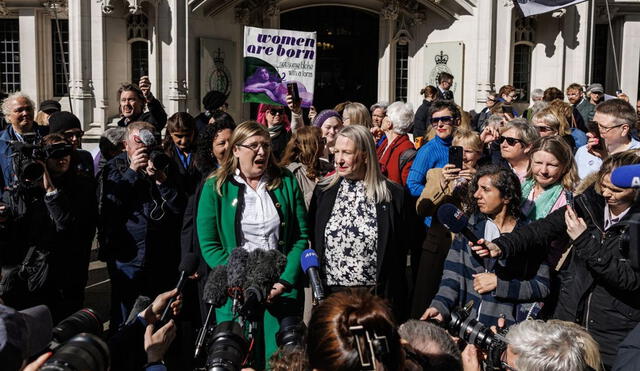LGBT Community: Ruling recognizes women by biological sex in the UK
Scottish MP Maggie Chapman says the trans community now fears that “people will attack their right to exist and that the decision would fuel the culture war”.

The United Kingdom's Supreme Court ruled on Wednesday that the definition of "woman" should be based on the biological gender assigned at birth. This decision sparked controversy among LGBT groups and activists.
This ruling specifies that even if transgender women have a gender recognition certificate (GRC), they do not fall within the legal definition of woman, according to the UK’s Equality Act. The court argued that “The concept of sex is binary; a person is either a woman or a man”.
Gender Recognition Certificate: Is it enough to combat discrimination?
According to the Supreme Court judges, the Equality Act already protects transgender people from harassment and discrimination. The Scottish government states that people could legally change their sex through the gender recognition process. It also asserts that by obtaining a Gender Recognition Certificate, transgender people enjoy the protections of the sex recognized by the certificate.
However, in reality, few transgender people have a Gender Recognition Certificate. Therefore, the ruling concluded that if there is any discrimination based on gender identity against people who do not have the certificate, a two-tiered system of protection would be created.
Women-reserved spaces: What does the ruling say?
The British Supreme Court judges concluded that if a space or service designated for women (toilets, shelters, prisons, and hospital wards) is not available, people who identify as women but were born male would not be able to access these spaces.
Regarding this decision, the chair of the Equality and Human Rights Commission (EHRC), Kishwer Falkner, said that transgender people should use their right to advocate to demand a third space in the restroom.

